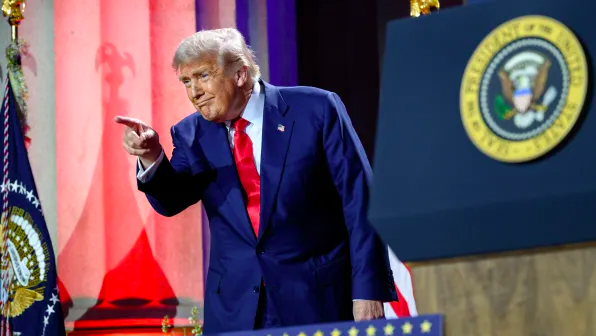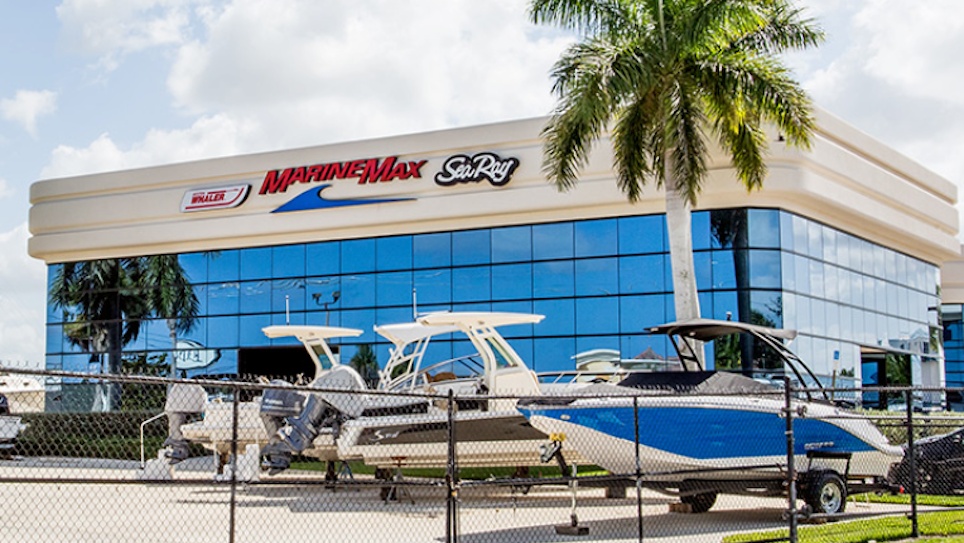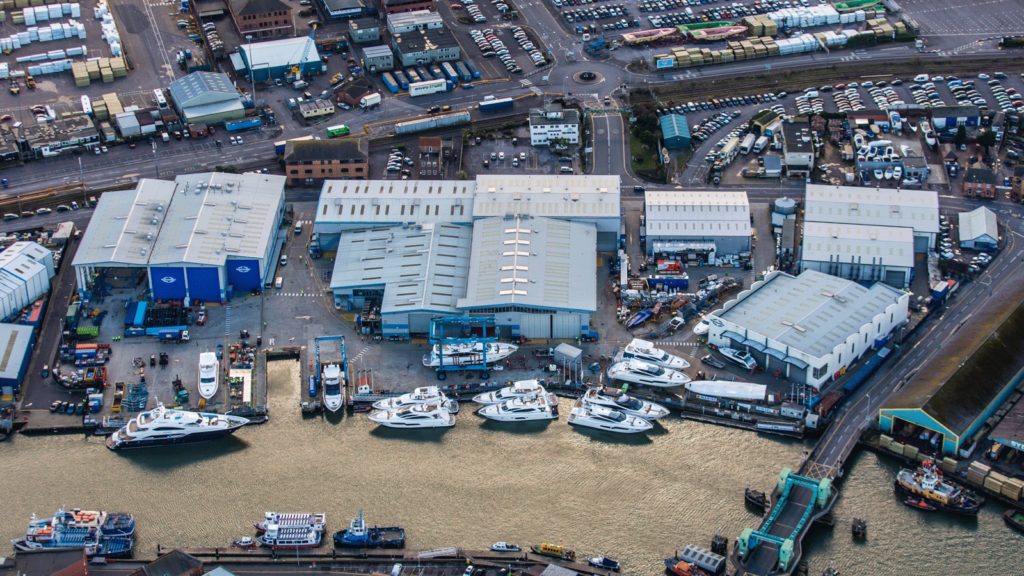Most of Donald Trump’s tariffs are illegal, says a US appeals court. The ruling came on Friday (29 August 2025), but tariffs are expected to stay in place until 14 October 2025, allowing time for the president and convicted felon’s (in 2024 Donald Trump was found guilty on 34 counts of falsifying business records) administration to appeal to the Supreme Court.
The decision (from the US Court of Appeals for the Federal Circuit in Washington, DC) addressed the legality of what Trump calls ‘reciprocal’ tariffs imposed in April, as well as tariffs imposed in February against China, Canada and Mexico.
Trump took to social media to berate the decision. “If these Tariffs ever went away, it would be a total disaster for the country,” he says, and then predicted a reversal “with the help of the Supreme Court.”
Trump has leveraged the International Emergency Economic Powers Act usually used by president’s to thwart ‘unusual and extraordinary’ threats during national emergencies, to impose his tariffs.
“The statute [IEEPA] bestows significant authority on the president to undertake a number of actions in response to a declared national emergency, but none of these actions explicitly include the power to impose tariffs, duties, or the like, or the power to tax,” the Washington court says. The history of the IEEPA is detailed online.
Trump declared a national emergency – and shocked the world with sweeping tariffs – in April over the fact that the US imports more than it exports, saying the persistent trade deficit was undermining US manufacturing capability and military readiness.
The Supreme Court (which has a 6-3 conservative majority) has issued a series of rulings favouring Trump’s second term agenda but has also in recent years been hostile to expansive interpretations of old statutes to provide presidents newly-found powers, says Reuters.
Tariff affects on the marine industry
In late August, Trump imposed a 25 per cent tariff on hundreds of steel and aluminium products, including construction equipment and automotive exhaust parts. The change means several marine products may now fall within the updated tariff categories. The National Marine Manufacturers Association – a trade association representing boat, marine engine and accessory manufacturers in North America – immediately advised its members to review their imported components, parts or products and confirm the relevant HTS codes.
Springfield Marine is expanding its US-based manufacturing capabilities and facilities in response to Trump’s policies. In early August the company broke ground on a 23,000sq.ft expansion at its Nixa, MO facility. Manufacturing capacity, for its Seating solutions, pedestal, and marine accessory, will grow by over 50 per cent. This allows the company to reshore key production to reduce costs and combat rising tariffs.
“The current tariff war, and particularly the 232 Tariffs on aluminum and steel, have added significant cost and supplying the US market from China is no longer cost effective. We will continue to operate our facility in China and service all non-US markets from that facility,” states Caroline Carnahan, owner of Springfield Marine.
In Juy this year, French manufacturer Tiwal announced a temporary suspension of all orders to the United States, amid ongoing uncertainty around tariff increases on European imports.
Twin Vee Powercats company CEO and president Joseph Visconti told MIN he welcomed the trade tariffs. He believes trade tariffs are an incredibly positive and necessary tool for strengthening American manufacturing and securing the long-term economic health of the USA. While some short-term adjustments may be required, the long-term benefits far outweigh the temporary challenges.
“For too long, unfair trade practices, foreign government subsidies, and artificially low labor costs have put American manufacturers at a disadvantage,” says Visconti.
“These tariffs level the playing field, ensuring that US companies can compete fairly without being undercut by artificially cheap imports. They protect American jobs, boost domestic investment, and drive technological innovation by keeping production within our borders.”
Consumer confidence in USA – slowdown reported
In a report published on 27 August by the Conference Board — the August Consumer Confidence Index — consumers reported more concern about tariffs and their impact on prices, particularly for groceries, along with reduced optimism around job availability and income prospects.
Recent data indicated a slowdown in job growth with employers adding fewer jobs than expected.
The report showed future purchasing plans varied by category, with intentions to buy cars and appliances ticking up, housing demand holding steady, and plans for electronics, vacations, and discretionary spending declining.
Declines across both present and future confidence indexes suggest households may become more hesitant to make large discretionary purchases, including boats.
NMMA – National Marine Manufacturers Association – says it continues to monitor consumer sentiment and its implications for marine businesses as well as continuing to engage with the administration, Congress and industry partners “to ensure US trade policy is targeted, balanced and aligned with the needs of American manufacturers.”
The post Trump tariffs not legal — but for how long? appeared first on Marine Industry News.




Leave a Reply